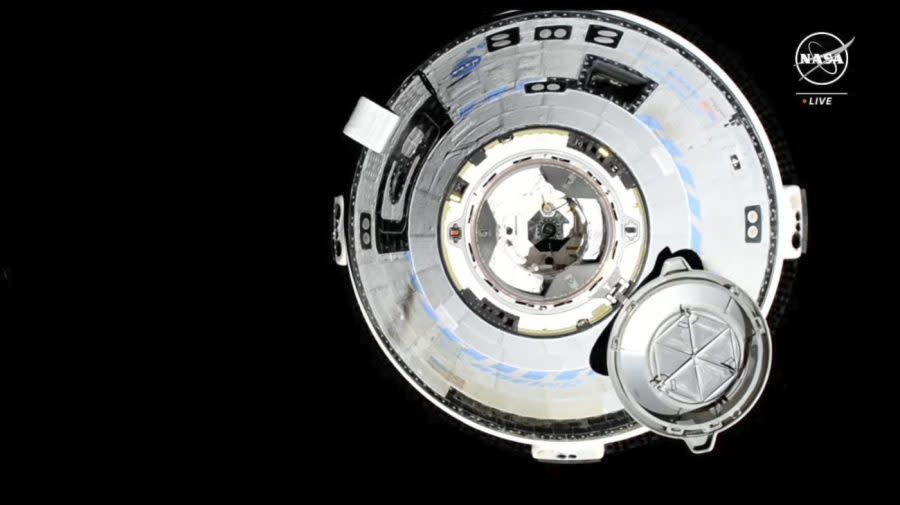Boeing Starliner docks on ISS after new leaks, thruster issues caused delay

Boeing’s Starliner space capsule successfully docked to the International Space Station (ISS) on Thursday afternoon, after being delayed by new leakage and thruster issues earlier in the day, NASA announced.
The Starliner spacecraft landed at 1:34 p.m. EDT Thursday over the southern Indian Ocean, NASA’s Commercial Crew confirmed on the social media platform X. Automated systems guided the spacecraft toward the forward port of the Space Station, NASA added.
The space capsule was originally expected to dock around 12:15 p.m. EDT, but two additional leaks popped up, The Associated Press (AP) reported.
The Starliner already experienced a helium leak upon launching into space Wednesday, which came after two previous delays in May. Boeing and NASA crew members believed the leak could be managed and that the risk of additional leaks was unlikely, though issues came up Thursday, the AP noted.
Four of the 28 capsule thrusters also went down, two of which were restarted, the news wire reported. It came hours after Boeing spokesperson Jim May said the leaks posed no safety issues and that the capsule held enough helium reserves to make up for what was lost.
It was not immediately known if the thruster problems were in connection with the earlier leaks, per the news wire.
The issues Thursday prompted Mission Control to not approach within 650 feet of ISS, known as the “keep-out” zone, delaying the expected 12:15 p.m. EDT docking by at least an hour.
Wednesday’s launch handed Boeing a rare win after the manufacturer faced months of scrutiny over the safety of its planes in light of a Boeing 737 Max that suffered a midair blowout earlier this year.
Boeing has worked on the development of the Starliner for more than a decade in hopes of giving NASA another U.S. spacecraft that can take astronauts to and from the ISS.
SpaceX’s Crew Dragon capsule first took astronauts in 2020. It was also built under NASA.
SpaceX has completed at least nine crewed missions, while Boeing has completed only two previous unmanned flights. For development, NASA gave $4 billion to Boeing and $2.6 billion to SpaceX.
The Associated Press contributed.
Copyright 2024 Nexstar Media, Inc. All rights reserved. This material may not be published, broadcast, rewritten, or redistributed.
For the latest news, weather, sports, and streaming video, head to The Hill.

